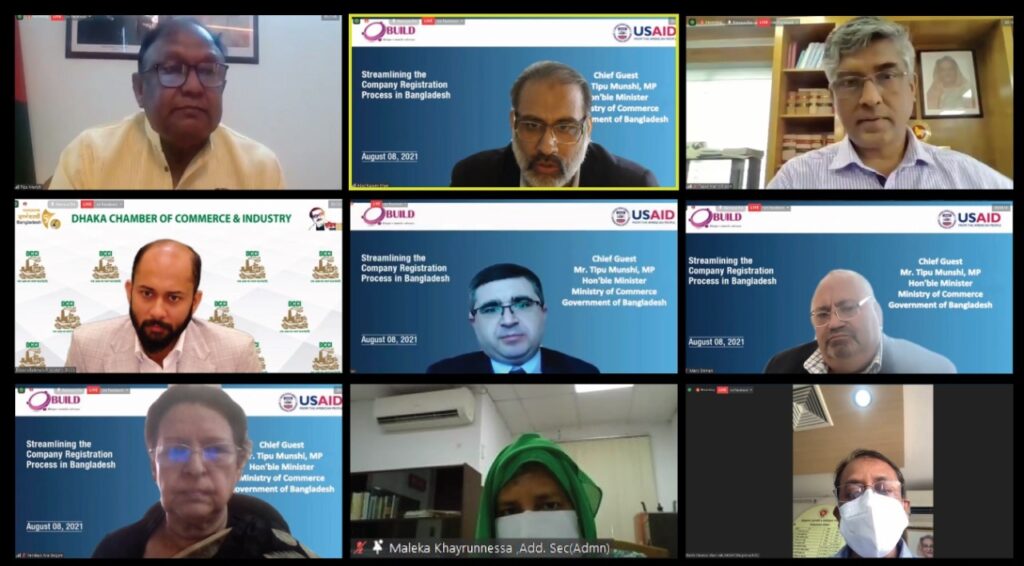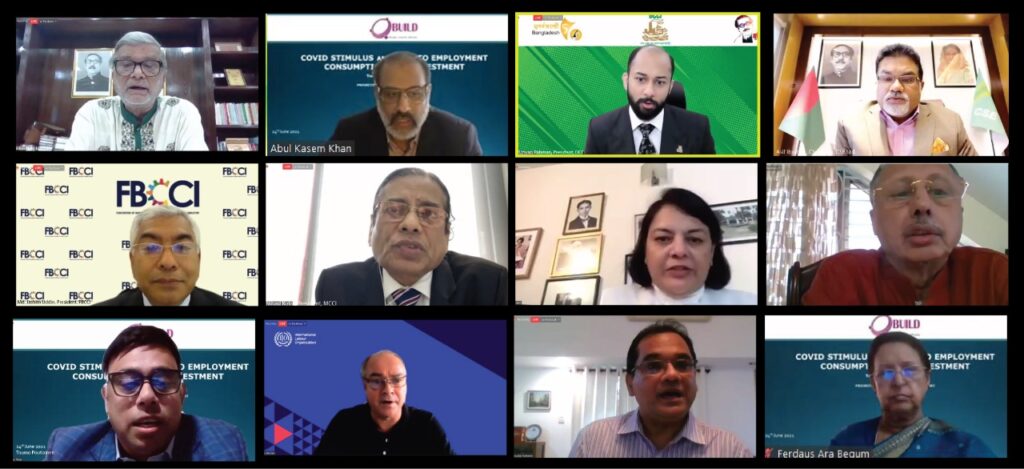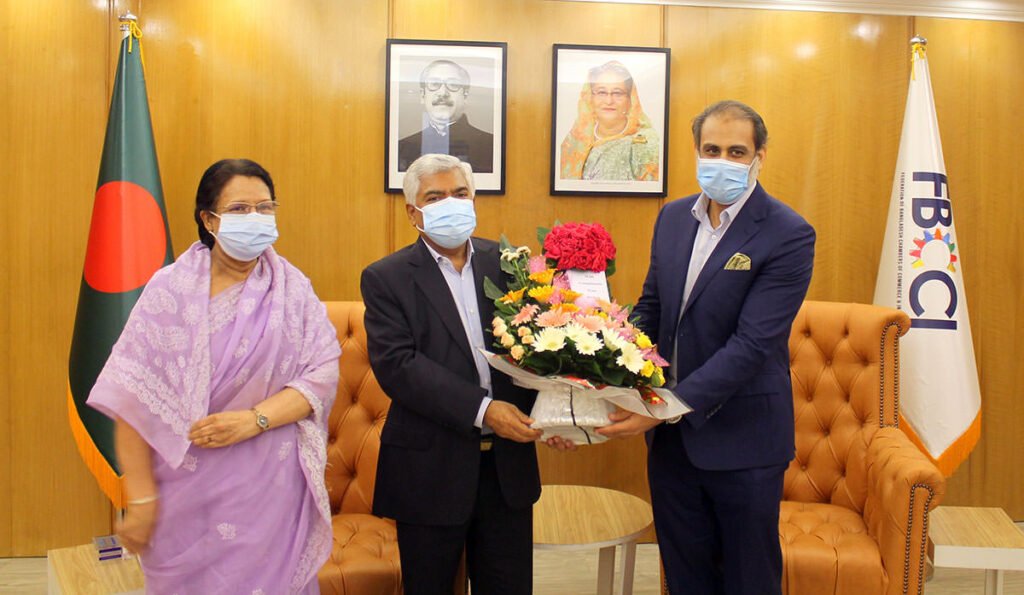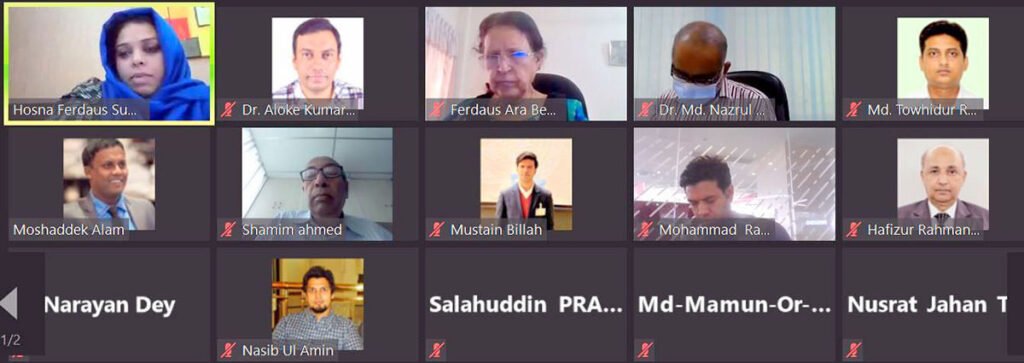Virtual Workshop on Export Trade Procedures for Women-Owned Entrepreneurs
Business Initiative Leading Development (BUILD) and International Finance Corporation (IFC), World Bank Group under BICF II funded by the Foreign, Commonwealth & Development Office (FCDO), organised a virtual workshop on Step by Step Export Trade Procedures and Online applications of getting better services for Dinajpur Women Chamber of Commerce and Industries (DWCCI). The key objective of the virtual workshop was to aware the women entrepreneurs on how to enter into the export trade. High officials from the Export Promotion Bureau (EPB), Custom House, Dhaka East, and private sector officials of the trade-related agencies participated in the workshop, which was organised on 22 August 2021.
Ms Ferdaus Ara Begum, CEO, Business Initiative Leading Development (BUILD), welcomed all the participants. She thanked DWCCI for their eagerness to respond first to have programs to raise awareness of their members on the trade procedures. She said that the country’s economy, amounting to 350 billion USD, is highly dependent on export. It is necessary to increase export revenue to create more employment. Bangladesh is maintaining its export target comparing to other countries amid the COVID-19 pandemic. Trade-related procedures are embracing online platforms day by day in the country. The women entrepreneurs must be aware of the trade-related procedures where increasingly IT solutions are introduced to make it instant and simple. Dinajpur has a high concentration on exportable agricultural products, poultry, handicrafts, fashion wear etc. and WoB are coming up in several new ventures, which is a good sign.
Kanis Fatama, Senior Research Associate and Shahriar Rawshon, Research Associate, BUILD jointly presented the keynote titled Women-Owned Entrepreneurs (WOE) on Export Trade. In reference to IFC (2016) data, the women-owned businesses (WOB) constitute six lac out of the 8 million businesses in Bangladesh. It is hoped that the full functioning of the Economic Zone at Dinajpur will make a vibrant contribution to the local economy. The presentation covered detailed step by step export procedures, time and costs engaged in getting permission, certificate, approvals etc. in areas of trade license, membership from the local chamber, online licensing module, export registration certificate, export permit, bank account opening, TIN certificate, VAT registration, customs procedure as well as incentives announced by the government to encourage export.
Exporters are awarded Cash Incentives, Bonded Warehouse Facility and Duty Exemption & Duty drawbacks upon their export earnings to ensure their export competitiveness in the export market. In the end, detailed case studies on (1) export of fresh vegetables from Bangladesh to the Middle East and (2) export of jute goods from Bangladesh to the EU were presented to provide an accurate and practical scenario of the export procedure from Bangladesh.
In the open session, moderated by CEO, BUILD, a number of WOB participated; Ms Shadia Khanom, Member, DWCCI, said that she is doing online business in the handicrafts sector. She hoped to expand her business depending on customers’ demand; she has her Facebook ID and posts her goods on her page to attract customers.
Enclosed is the press release (in English) for your kind consideration. Please feel free to contact us for any queries.
Virtual Workshop on Export Trade Procedures for Women-Owned Entrepreneurs Read More »










